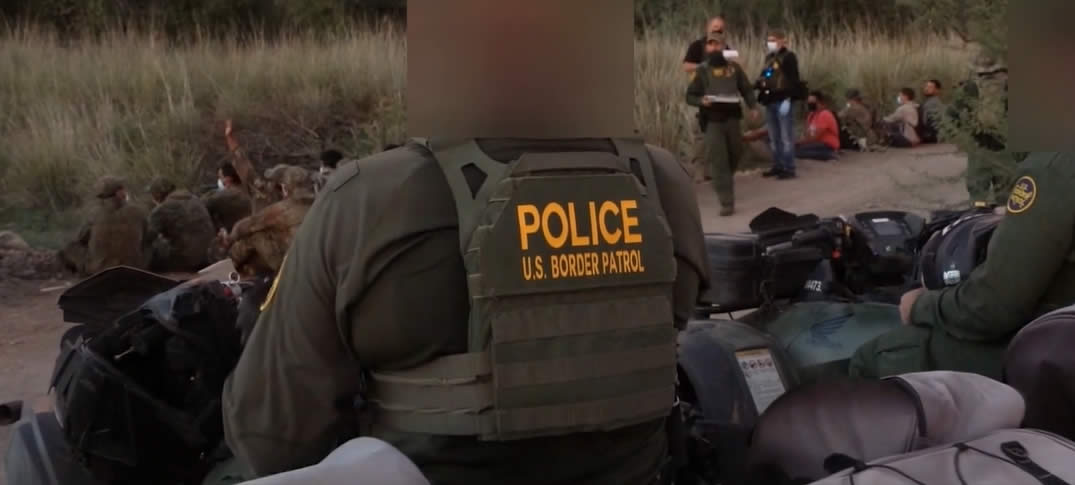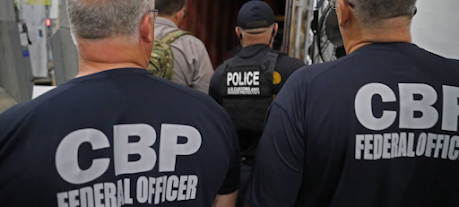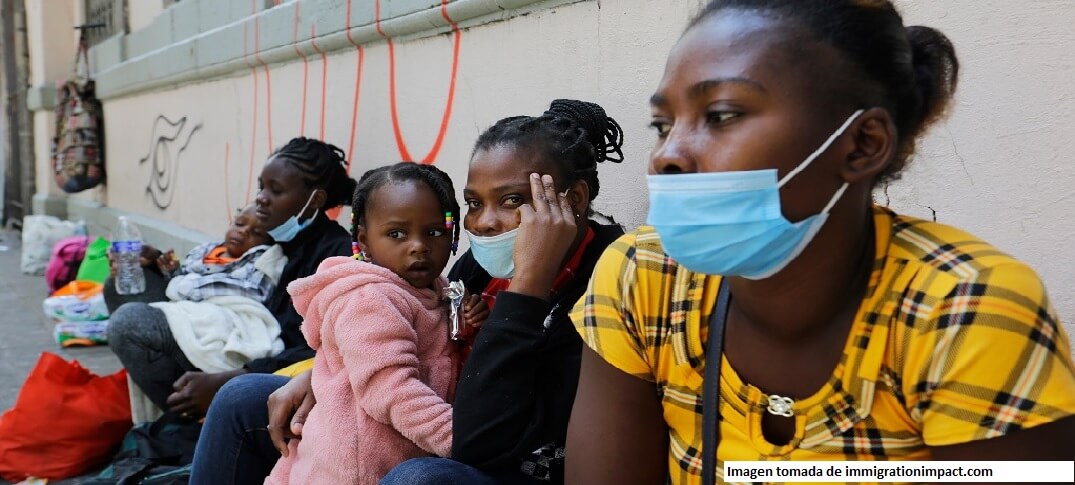Laura Gottesdiener de Democracy Now! se sentó a conversar con una madre salvadoreña llamada Belqui Yessenia Castillo Cortez, que se reencontró con su hijo de tres años de edad, Michael, la semana pasada, tras haber sido separados por los funcionarios de inmigración en la frontera en Texas.
Los documentos federales muestran que madre e hijo llegaron al puerto legal de ingreso en la ciudad de Río Grande el 28 de mayo de 2018 para solicitar asilo en Estados Unidos. Las autoridades de inmigración los detuvieron, luego los separaron y a Belqui la mandaron al Centro de Detención Port Isabel en Texas, mientras que su hijo de tres años de edad fue llevado en avión a la ciudad de Nueva York. Allí estuvo alojado en un lugar administrado por una agencia de servicios humanos llamada Abbott House. “Su comportamiento es realmente agresivo”, afirma la mujer. “No era así antes… Es violento, más que nada”.
Compartimos parte de la entrevista que hiciera democracynow a Belqui Yessenia Castillo
gfgddfgd
AMY GOODMAN: We end today’s show looking at the emotional and psychological impact of family separation. On Wednesday, Democracy Now!’s Laura Gottesdiener sat down with a Salvadoran mother named Belqui Yessenia Castillo Cortez. She reunited with her 3-year-old son Michael last week, after they were separated by immigration officials at the border in Texas. Federal documents show the mother and son arrived at the legal port of entry in Rio Grande City on May 28th to apply for asylum in the U.S. Immigration authorities detained them, then separated them, sending Belqui to the Port Isabel Detention Center in Texas, while her 3-year-old son was flown all the way here to New York and held in a facility run by a human services agency called Abbott House. Laura began by asking Belqui what it was like to be reunited with her son on July 11th.
BELQUI YESSENIA CASTILLO CORTEZ: [translated] Suddenly they called me. And, oh, it was so beautiful, because it had been 41 days without my son, and I felt like I couldn’t any longer. The reunion with my son was something—well, it was emotional, but also sad, because he didn’t react the way his mother—the way I imagined he would have reacted. He just turned and looked at me. He didn’t cry. He just looked into my eyes. He looked at me and never broke his gaze. No, it wasn’t easy. It was beautiful to reunite with him. But to be confronted with this, no. A week has passed, exactly. At the beginning, it was the same. He didn’t seem to love me very much. But now, thank God, it’s changing a bit. Now he knows our family. Now he has remembered, because—well, maybe it’s more like he never forgot. It was just the feelings that he had, because he felt abandoned.
LAURA GOTTESDIENER: And are there any changes in his attitude or his behavior or personality?
BELQUI YESSENIA CASTILLO CORTEZ: [translated] Yes, there are differences. His behavior is really aggressive. He doesn’t listen to me at all. Yes, I am having this problem, because since we arrived, he’s been acting this way. And he wasn’t like this before. I went with him in buses the whole way. And imagine coming from El Salvador to the United States by bus. He would have had to—I would have had to return with a child like this. But, then, he traveled really calmly. I brought him from there to here, and everything was fine, because, in truth, he wasn’t like this before. Because to travel six hours, eight hours, on a bus with a child as he’s acting now, I imagine I would have had to return to my country. But, no, he held out 'til the 28th of May, and now he's acting very differently.
LAURA GOTTESDIENER: What differences do you see? You said he was acting a bit aggressively. How does this manifest?
BELQUI YESSENIA CASTILLO CORTEZ: [translated] Yes. He doesn’t listen. He’s violent, more than anything else, with me. Ever since he was released to me, he doesn’t listen to me anymore. Sometimes he hits me. The day we reunited, the reunion, it was like he felt hurt that I had left him. Something like that. I felt like he had something that he wanted to tell me, but at his age he just couldn’t express it, because he just stayed looking at me with a face, with a gaze, that told me everything.
LAURA GOTTESDIENER: Why did you come here? Why did you decide to come?
BELQUI YESSENIA CASTILLO CORTEZ: [translated] Because I’m in danger in my country. I’m in danger because of the gangs, because of the discrimination, the threats. The same person who raped me in January 2014 is the person who left me pregnant with my child. I was discriminated against in my country for being a lesbian. They beat me, even some of my friends, when I was in 16. And the father, if I can call him that, he raped me for the same reason, for being a lesbian, and with the aim of making me pregnant.
I want a future, I want to begin a future with a person I love, to marry. I also want that. I want to be happy with my child and my family. I also want protection and the support I don’t have in my country. This is why I came, for a happy future, because up until now, it hasn’t. I have never had any freedom, not even with the girlfriends I’ve had, absolutely nothing. It’s as if we’re not there. We’ve always been hidden. It hasn’t been freedom or happiness, not at all.
AMY GOODMAN: That was Belqui Yessenia Castillo Cortez, separated from her 3-year-old boy Michael for 41 days. She just reunited with him. She was speaking with Democracy Now!'s Laura Gottesdiener. The video produced by Anna Barsan and Cinthya Santos. Special thanks to Ali Toxtli. In 3-year-old Michael's discharge papers from Abbott House here in New York, a clinician described the child as having a “laidback personality and a quiet disposition” who interacts “positively and kindly with peers.” But she also wrote, “He has had some difficulty adapting to the program. During admission he would cry continuously and ask for his biological mother, Belqui.”
Analizamos los impactos psicológicos que la separación familiar tiene en los menores, con Nancy Burke. Burke es psicoanalista y vicepresidente de la organización Psychotherapy Action Network que colaboró con la publicación de un folleto destinado a ayudar a los padres migrantes separados de sus hijos.
Además es miembro del plantel de profesores del Centro para el Psicoanálisis de Chicago y la Escuela Geinberg de Medicina de Northwestern University. Burke afirma que el trauma que los niños están experimentando en los centros de detención “los congela en el tiempo” y les anula la capacidad de expresars, a continuación parte de la entrevista de democracynow con la psicoanalista
ksldkfs
AMY GOODMAN: Well, for more on the psychological impacts family separation has on young children, we’re joined by Dr. Nancy Burke. Dr. Nancy Burke is a psychoanalyst and a co-chair of the Psychotherapy Action Network, which has helped to publish a pamphlet aimed at helping immigrant parents separated from their children understand their different children who return. She’s on the faculty of the Chicago Center for Psychoanalysis and the Feinberg School of Medicine with Northwestern University.
Dr. Burke, welcome to Democracy Now! As we’re looking at this story, the little boy, Michael, her little boy that she’s just reunited with, over a month away from him, is biting apart a Nerf football. And through the hour—it was an extended interview—he bit the whole thing apart. Talk about the effect on these children.
NANCY BURKE: [inaudible] say is that normal reactions—I don’t like to use the word “normal,” but I’m going to use it in this case, because I want to emphasize that normal reactions to abnormal circumstances look abnormal. So, if you saw a child in a playgroup chewing on a Nerf ball, biting it to pieces, you would be very confused about that. But we can appreciate that children, who don’t have language and they don’t have a way to express their needs and they don’t have a way to express what’s frightening to them, would act out in their bodies. And that’s something that we know over and over again. It’s something that parents hopefully haven’t had to see so much of.
And we thought that was our role, to be able to tell parents these are normal reactions to very abnormal circumstances. And this is really—reunification with children who have been through the circumstance is really—it’s either an opportunity or a real nodal point, that can be extremely difficult after all of the hope and all of the final relief in the reunification. So, you know, we wanted to be able to impart that knowledge to parents so that they have some sense of what to expect and how to react.
AMY GOODMAN: So, talk about this brochure. It’s not geared to the general public. You’re doing it for the separated parents, who, so excited if they finally accomplish this feat of finding their children, separated by the Trump administration, that they find such different children.
NANCY BURKE: Absolutely. And they don’t expect it. If you are in that circumstance, all of your interest, all of your hope is going to be focused on reunification. And that seems like an end to the story in itself and a happy ending, and all the more shocking than when it isn’t. And so, we wanted to be able to use our knowledge, the things that we sit with in our office every day when we talk to people who have been traumatized, people who are adults who have been traumatized as children. We know some things about what to expect and what the sequelae of trauma are, and how long-lasting they are, how they show up. And we wanted to be able to offer that, because, first of all, we just wanted to be able to prepare parents, who really aren’t prepared psychologically. They’re really prepared to be reunited, and they’re prepared to—you know, for that one moment. And they don’t really brace themselves—how could they?—for the long, long period of recovery afterwards.
AMY GOODMAN: And what about these children that have been drugged? You have heard these previous reports we brought you, kids who were shot up with—it’s not even clear what drugs, when they cry for their mothers or for their fathers.
NANCY BURKE: This is a really just devastating and terrible thing, because one of the things that we know is that children who are traumatized don’t have access to their feelings, and therefore can’t put them in words, can’t structure them, can’t use relationships in order to be able to make them manageable. And what this does is, essentially, it gives children a lack of access to be able to express themselves. So, in essence, it freezes them in time, and it does so in a way that’s very frightening. They suddenly don’t even know themselves. And their parents can’t know them, either. So, we’re very concerned about these reports.
AMY GOODMAN: We have less than a minute, but the long-term impact of this trauma and what resources do these parents have? I mean, Belqui, who we just played her story, is wearing an ankle monitor. You know, it’s put on by the U.S. government. She is tracked everywhere. But what resources do they have to help their children?
NANCY BURKE: You know, when we gave this pamphlet, really, it’s a symbol that there are other resources out there, and there are organizations of concern. It really will take a village, a very long time. We did leave a space on the pamphlet for information about local organizations. We highlighted United Way, Freedom for Immigrants. We highlighted Informed Immigrant. And we wanted people to know that there were organizations. But on our pamphlet, we were really happy to be able to add something from Fred Rogers, who’s helped so many American children over the years over TV, because one of the things that he says over and over again is, “When you’re in trouble, find a helper.” And we want to encourage people to reach out. One thing we know is that trauma tends to silence people, and it tends to not be spoken of. And so, we just wanted the pamphlet to be a catalyst, so that things that weren’t thought to be spoken of could really be spoken of with people who can help.
AMY GOODMAN: Nancy Burke, we want to thank you so much for being with us, psychoanalyst, co-chair of the Psychotherapy Action Network. We will link to the pamphlet you published, aimed at helping immigrant parents separated from their children.










